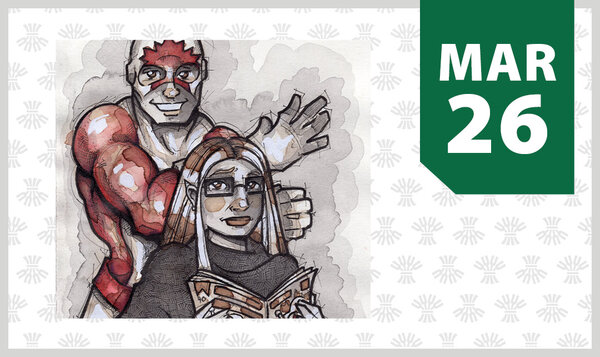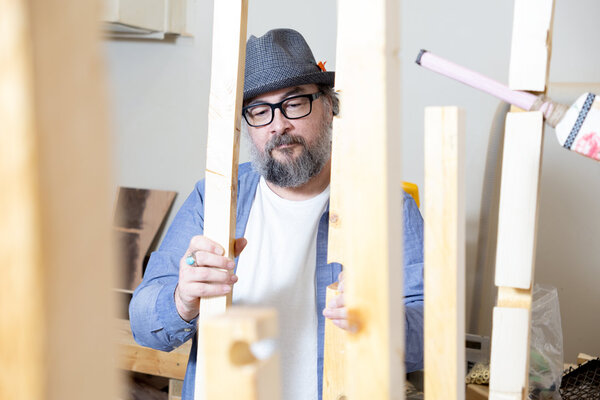
USask music ensembles to honour health-care workers with free outdoor concerts
The Greystone Singers and the Wind Orchestra will perform on Oct. 5 and the Jazz Ensemble will perform on Oct. 6
By Shannon Boklaschuk
As the COVID-19 pandemic continues at home and around the world, musicians at the University of Saskatchewan (USask) will pay tribute to health-care workers with a series of free outdoor concerts set for early October.
The concerts are part of the Play it Forward series developed in the Department of Music in USask’s College of Arts and Science. Play it Forward was created following a brainstorming session between three ensemble directors: Dr. Jennifer Lang (PhD), of the Greystone Singers; Dr. Darrin Oehlerking (DMA), of the Wind Orchestra; and Prof. Dean McNeill, of the Jazz Ensemble. In past years, the Play it Forward concerts—which take place at the start of the academic year—have proven to be very popular with attendees.
“Our students in the music ensembles are very generous with their time and talents to help others, and so a few years ago we decided to Play it Forward by passing the baton from one ensemble to the next in a free concert where we requested food and monetary donations to the Saskatoon Food Bank and Learning Centre,” said Lang, an associate professor in the Department of Music.
“For two consecutive years—pre-pandemic—we could not fit the audience into Quance Theatre and the Education Lounge because it was so popular. This year, we are mindful of our responsibility to keep ourselves and each other safe and to honour those in health care who are doing the same. Each ensemble is therefore performing a few selections outside in the seeing or hearing range of hospitals near our campus.”
The Greystone Singers will perform a free concert on Tuesday, Oct. 5, at 3 pm at Royal University Hospital. That same day, the Wind Orchestra will perform at 4:30 pm at the Education Football Field. On Wednesday, Oct. 6, the Jazz Ensemble will perform at 5 pm at the Statue Garden (rain dates can be viewed here). Everyone is welcome.
Musicians from each of the ensembles are looking forward to coming together in support of front-line health-care workers. Lang noted that the ensembles in the music department “faced a very difficult and challenging time” in 2020 as they pivoted online and “had to sing or play on Zoom while muted and separated due to the pandemic.” This experience only reinforced how special an opportunity it is to be able to make music together as a community, at the same time, she said.
“In whatever format we were rehearsing—completely online or hybrid—the act of coming together to celebrate community in and through music sustained many of us through this difficult time. We are so grateful this year that we are able to come together fully in person to make music and that is, in large part, a debt of gratitude to those who have kept us safe and risk their lives on an ongoing basis to keep us safe,” she said.
“If we are fortunate to come together as a music community, then it’s our responsibility to come together in support of the greater community. Amidst the controversy and complexity in which we are confronted, we hope to remind people of the beauty of humanity. This is accomplished through music and through the gesture of giving to others. In this way, we are ‘Playing it Forward.’ ”
Throughout the pandemic, Lang and her colleagues found creative ways to ensure musicians could still safely make music together during a time of physical distancing.
During the 2020-21 academic year, when the USask campus closed to the public and classes were taught remotely to help keep students, faculty and staff safe, Lang received emails and testimonials from students who spoke about the significant role music played in their lives during the pandemic, whether it was “connecting them to a greater community—even online—beyond their bedroom walls or serving as an emotional or spiritual outlet.”
These experiences helped inspire a new course that Lang will coordinate and co-teach this winter—MUS 298.3: Music and Wellbeing—that will introduce histories, contexts and theories of music in relation to the human experience. Based on neurological, psychological and biological foundations, students will learn about the power of music and musicking in building identity, community and emotional resilience, and in enhancing spiritual practice.
“Humans are meant to participate in music, either as music makers or in appreciation of it. Through music we can show praise, celebration, honour and provide entertainment, but— most importantly—it builds community,” Lang said.
“When we unite with each other through music for a common cause—that being to support others and strengthen relationships—we recognize that we are part of something greater than we could achieve on our own. As an ensemble, we physically achieve synchrony through our breathing and heart rates, and we learn to trust each other and tune into each other. In that respect, we commit to the act of making music and it commits to us through improving the quality of our lives and the lives of others who share in this experience.”
More information about the Play it Forward concert series can be found here. Please note that everyone coming to USask campuses must follow USask’s vaccination measures and masking requirement.
The College of Arts and Science is now on Spotify! Follow USaskArtSci to hear playlists curated by and for students, faculty, staff and alumni. More than 50 playlists are already available, including tracks by Department of Music faculty.
Videos: The above videos (from top) feature the USask Jazz Ensemble, the USask Wind Orchestra, the Greystone Singers and the University Chorus.


